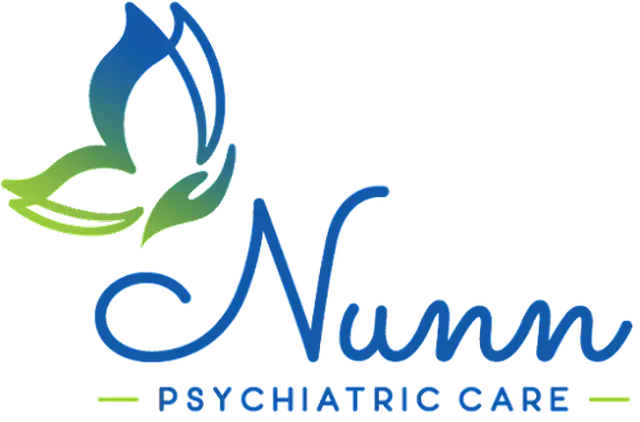
Trauma affects every individual differently. Whether caused by a single life-altering event or the accumulation of distress over time, traumatic experiences can leave lasting imprints on our mental, emotional, and even physical health. At Nunn Psychiatric Care, we believe in taking a compassionate and evidence-based approach to healing—and one powerful tool that is increasingly recognized in therapeutic settings is storytelling.
In this blog post, we’ll explore how storytelling helps individuals process trauma, the psychological benefits it offers, and how our team can support you or your loved ones through narrative-based therapy and integrative psychiatric care.
The Power of Storytelling in Mental Health
Storytelling is a fundamental part of being human. From ancient myths to modern memoirs, sharing our stories is how we make sense of the world and connect with others. For trauma survivors, storytelling becomes even more vital—it provides a pathway toward healing by helping individuals externalize their pain and reclaim their sense of self.
How Storytelling Helps with Trauma
- Creates Meaning from Chaos
Trauma often leaves people feeling fragmented or confused. By constructing a coherent narrative, individuals can begin to understand and make sense of what happened. - Restores a Sense of Control
Speaking or writing about traumatic experiences gives survivors an opportunity to reclaim their voice and control how their story is told. - Validates Experience
Being heard and believed—whether by a therapist, support group, or journal—can offer profound relief and validation. - Builds Connection and Reduces Isolation
Trauma can be incredibly isolating. Storytelling opens the door to empathy, understanding, and shared experiences. - Promotes Brain Integration
Research suggests that narrating experiences can engage both the emotional and logical parts of the brain, leading to healthier processing and resolution of trauma.
Therapeutic Storytelling Techniques
At Nunn Psychiatric Care, our clinicians use storytelling in various ways, depending on a patient’s needs, comfort level, and personal history. These may include:
- Talk Therapy (Psychotherapy): One-on-one sessions where patients are guided to share their story in a safe, nonjudgmental space.
- Journaling or Expressive Writing: Encouraging written expression as a way to externalize trauma.
- Narrative Therapy: A structured approach that separates the person from the problem and re-frames the story with empowerment and resilience.
- Group Therapy: Sharing stories with others in similar situations can offer support and community.
- Creative Arts Therapy: Using drawing, poetry, or music as a form of storytelling when words alone are not enough.
Our goal is to ensure that every person feels seen, heard, and supported throughout their journey.
Q&A: Storytelling and Trauma
Q: Is storytelling appropriate for all types of trauma?
A: While storytelling can be a powerful tool, it is not a one-size-fits-all solution. Some individuals may feel overwhelmed or re-traumatized by retelling their stories too soon. That’s why it’s essential to work with a trained mental health professional who can pace and guide the process safely.
Q: What if I don’t remember all the details of my trauma?
A: That’s completely okay. Healing through storytelling isn’t about accuracy—it’s about emotional truth and the meaning you assign to the experience. Partial memories, metaphors, or fragmented reflections are all valid ways of telling your story.
Q: Can storytelling trigger PTSD symptoms?
A: It’s possible, which is why it’s important to approach storytelling gently and with the right therapeutic support. At Nunn Psychiatric Care, our providers are trained in trauma-informed care and will never push a patient to share more than they’re ready for.
Q: How do I start telling my story if I feel ashamed or embarrassed?
A: Shame is a common response to trauma, but it thrives in silence. Finding a trusted therapist or a private outlet (like a journal) is a gentle way to begin. With support, many people discover that speaking their truth is incredibly liberating.
Q: What makes storytelling different from just talking about my problems?
A: Storytelling is intentional—it helps you organize your thoughts, identify patterns, and view your life from a broader perspective. It’s not just venting; it’s crafting meaning from experience.
Q: How does storytelling work with medication or other treatments?
A: Storytelling can complement psychiatric treatment such as medication, mindfulness, or lifestyle changes. At Nunn Psychiatric Care, we offer integrative care that may combine talk therapy with medical management to support holistic recovery.
You Are Not Alone in Your Story
At Nunn Psychiatric Care, we are here to help you write the next chapter of your healing journey. Whether you’re navigating recent trauma or carrying pain from the past, your story matters—and so does your future. Together, we can transform suffering into strength, one word at a time.
Contact Us
Nunn Psychiatric Care
📍 113 Lincoln Dr, Hodgenville, KY 42748
📞 Phone: (270) 358-6221
Our compassionate team is ready to support you with trauma-informed care, therapy, and medication management. Call today to schedule an appointment or learn more about our services.
Your story isn’t over—it’s just beginning. Let us help you find your voice and healing.
